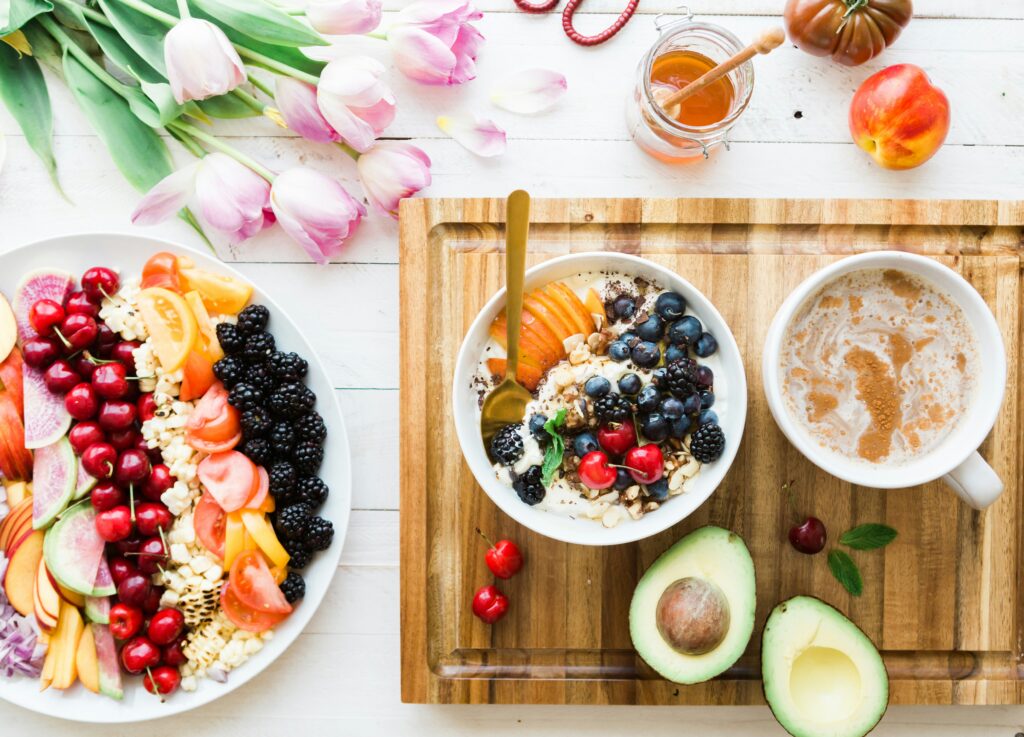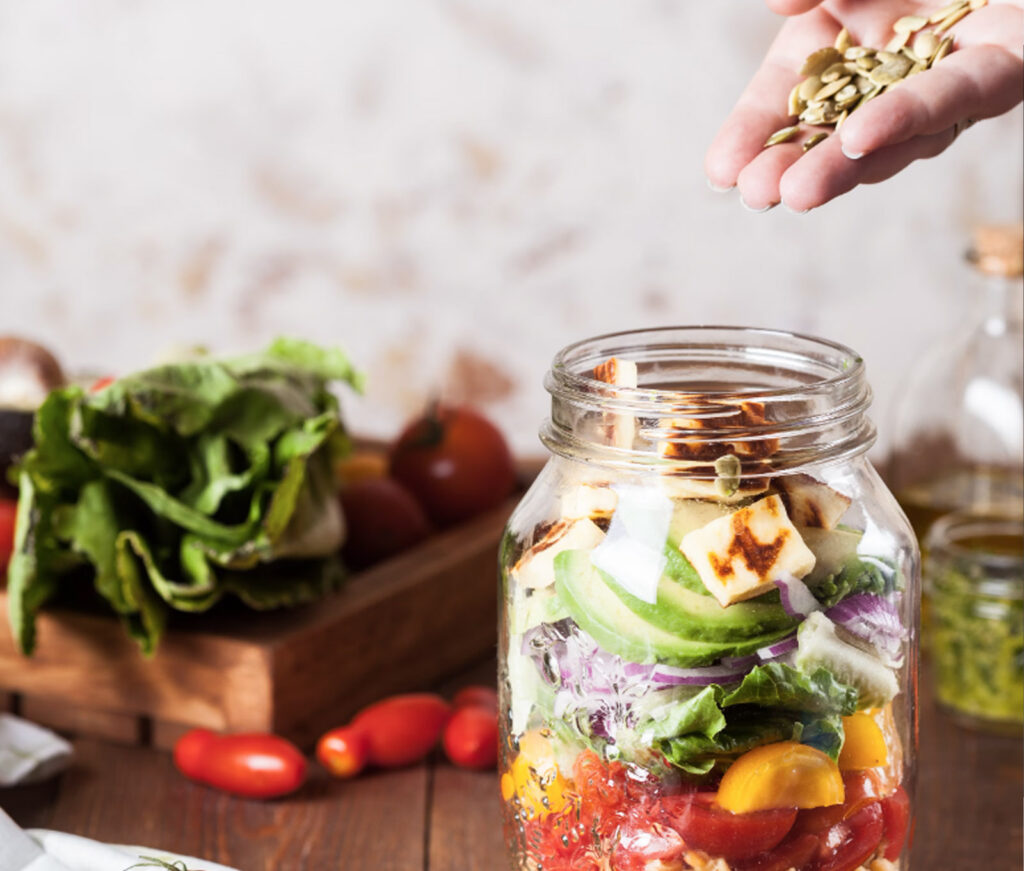Taking care of our bodies involves more, than hitting the gym: it extends to aspects of our well-being.
We are focusing on a topic that many women are increasingly interested in. The health of our system. What used to be a subject is now gaining popularity in the wellness community for reasons.
The state of our system significantly impacts our health and wellness. It’s important to address gut health issues understand why they occur and learn how to improve your gut health to boost your well being and excel in areas of your life (like giving your best at the gym!).
Lets start the conversation, about Gut Health!
Maintaining good gut health is crucial, for both women and men as various digestive issues can impact anyone. These include conditions like Crohns disease, ulcerative colitis, diverticular disease and coeliac disease. However one of the conditions is irritable bowel syndrome (IBS) affecting approximately 15% of people worldwide.
IBS manifests through a range of symptoms, such as:
- Abdominal pain and cramps experienced post meals which may subside after visiting the restroom
- Bloating and gas
- Diarrhea
- Constipation
If you recognize any of these symptoms in yourself its advisable to consult your doctor for an evaluation to rule out potential causes of your digestive discomfort. This step can set you on the path towards a gut!
Contents ↑WHAT TRIGGERS IBS?
IBS falls under the category of bowel disorders meaning it impacts how the bowels function without any abnormalities in the gastrointestinal organs (, like the stomach or intestines). The issue lies in how the gut operates.The exact cause of IBS is still a bit of a mystery likely because the various digestive symptoms falling under this category may not stem from a source. However one of the triggers, for IBS symptoms to kick in is often linked to a recent episode of food poisoning or an intestinal infection like gastroenteritis.
Furthermore there are processes that might play a role in IBS. These processes involve the interplay between the guts system and the brain, our gut flora and the intestinal immune system. All of which I will delve into further…
Contents ↑WHY DO WE GET BLOATED?
Bloating is a complaint related to gut health characterized by feelings of fullness, tightness and discomfort, in the abdomen. Many people liken bloating to having a balloon in their stomachs often accompanied by pain, gas and frequent burping. It’s definitely not pleasant! In some cases individuals may also experience distension where their belly appears reminiscent of pregnancy.
It’s important to know that bloating is quite normal and if you experience it you’re certainly not alone.
It’s quite common, for women who visit me to experience a decrease in confidence and body image due to bloating which can also impact their motivation for activities. Check out our Tips section for information and assistance with bloating.
HOW DOES YOUR DIGESTIVE HEALTH INFLUENCE YOUR HORMONES?
The connection between the gut and hormones is stronger than you might imagine. An unhealthy gut (dysbiosis) can lead to imbalances, such as estrogen dominance.
Stress plays a role in gut health and hormone regulation well. Cortisol, the body’s stress hormone redirects blood flow from the gut to the brain, muscles, and limbs during times of stress to prepare for fight or flight responses. Consequently, chronic stress can hinder function since the gut requires adequate blood flow.
TOP FOODS, FOR IMPROVING GUT HEALTH
Gut Health Foods
To promote a gut environment it’s essential to determine which diet suits you best by identifying and eliminating any food intolerances that could be triggering your symptoms (refer to our elimination diet tips below!).Here are some foods you should incorporate more into your diet:
-
Fiber
Fiber, a carbohydrate derived from plants travels through the system and serves as a nourishment, for gut bacteria leading to the production of anti-inflammatory substances. You can find fiber in.
-
Fruits
Rich in nutrients and antioxidants fruits are a fiber source that supports gut health. Some of the high-fiber fruits include raspberries, pears, apples, and kiwi.
-
Vegetables
Packed with fiber and an abundance of vitamins and minerals vegetables like spinach, kale, arugula and bok choy are choices to boost your fiber intake.
-
Nuts and seeds
Apart from being high in fiber content, nuts and seeds like walnuts, pumpkin seeds and almonds also provide monounsaturated fats that promote heart health. Additionally lignans present, in nuts and seeds help maintain balance by eliminating estrogen from the body.
-
Legumes
Beans, peas, lentils – even peanuts belong to the legume family!Legumes not provide an amount of fiber but also serve as an excellent plant based protein source making them ideal, for vegans looking to meet their daily protein needs!
-
Whole grains
Products like rice, buckwheat, oats and millet not aid in maintaining regularity due to their fiber content but also offer essential B vitamins crucial for energy production. To reach the recommended 30g of fiber daily try adding nuts and seeds to your breakfast or salads and keeping the skins on your fruits and vegetables.
-
Prebiotic foods
Incorporate foods into your diet such as apples, oats, bananas, asparagus, Jerusalem artichokes, leeks and chicory. These plant based foods nourish gut bacteria.
FERMENTATION IS GOOD FOR GUT HEALTH
Fermentation plays a role in gut health by increasing the presence of bacteria. Foods, like kimchi, kefir, kombucha and sauerkraut are examples of fermented foods that can enhance gut bacteria diversity according to studies.
A study conducted at Stanford School of Medicine involved a group of grown ups who followed a 10 week diet, in fermented foods. The diet was found to boost the diversity of gut bacteria and enhance function.
How to ferment foods in your kitchen
Many individuals may think that fermenting foods at home is complex. Its actually quite simple and beneficial for your health. Fermented foods have a shelf life. Can be used in various ways making them a great addition to your meals.
Tips
Seeking guidance from a nutritionist can greatly assist you in identifying your triggers and finding solutions to alleviate your symptoms. Personalized advice tailored to your needs can make a difference.
We are all unique, in our makeup much like how each of us has a distinct fingerprint.
While individuals may react differently to foods I suggest considering incorporating the beneficial foods for gut health into your diet as mentioned earlier. Additionally I’m sharing some causes of bloating and tips to address it below;
Health conditions
Conditions such as IBS, inflammatory bowel disease, coeliac disease eating disorders like anorexia nervosa or bulimia nervosa, anxiety and depression can contribute to bloating. If any of these conditions affect you it’s advisable to consult your GP to discuss managing bloating based on your situation. Please note that the causes mentioned below are relevant to IBS.
Food intolerances and sensitivities
This category includes FODMAPs ( oligosaccharides, disaccharides) non coeliac gluten sensitivity and lactose intolerance. Food intolerance refers to difficulty digesting a food due to fermentation in the gut (which produces gas leading to bloating) or enzyme deficiencies (like lactase in lactose intolerance). Food sensitivity involves a response, to foods that could also contribute to bloating.If you suspect you might have a food intolerance or sensitivity try keeping a food journal for three weeks and compare it to your symptoms. Look for any foods that could be causing issues and remove them from your diet for six weeks. If you start feeling better during this time slowly reintroduce those foods one, by one waiting three days to see if any symptoms reappear. Repeat this process with restricted foods to determine what works best for your gut health in the run. Keep in mind that if after the six week period you don’t experience relief it might mean those foods aren’t the cause of your symptoms and other factors should be considered.
Dysbiosis (including SIBO)
Dysbiosis refers to an imbalance of bacteria, in the gut. The microbiome consists of both harmful bacteria residing in our bodies.
Dysbiosis can manifest in ways:
- Friendly bacteria
- Excessive growth of friendly bacteria
- Limited diversity, in gut bacteria
- Proliferation of harmful bacteria
- Abnormal bacterial growth in places like the small intestine (referred to as SIBO)
Several aspects of lifestyle like stress, sleep, processed foods, sugary treats, alcohol consumption and antibiotic use can all play a role in dysbiosis. This imbalance can also lead to leaky gut syndrome ( permeability) where the gut lining becomes permeable and allows bacteria and food particles into the bloodstream triggering inflammation and digestive issues.
Lack of digestive enzymes
When there is a shortage of enzymes – proteins that aid in breaking down food into molecules – the bodys ability to digest and absorb nutrients may be compromised. This can result in gas accumulation. Bloating due to digestion.
Luckily certain foods, like pineapple, papaya, ginger and avocados contain enzymes that can help enhance digestion processes.
Why not incorporate some of these items into your meals to aid in digestion?
Not properly chewing your food
It may seem simple. If we don’t chew our food thoroughly we’re not allowing salivary enzymes to cover our food and initiate the digestive process. This is a cause of bloating that should not be underestimated.
Try aiming for 30 bites, with each mouthful before swallowing. Make sure to eliminate distractions during meals such as media, TV or using laptops as these can disrupt the mindful eating experience and impact digestion.
Wearing clothing
Certain garments can constrict the region and worsen bloating.
Making choices in your wardrobe could help alleviate your symptoms. For instance opting for Bonafide waisted leggings might be beneficial for workouts if you experience bloating because of their materials and supportive waistbands.
Water retention
This occurs when the body retains water leading to bloating and gut distension.
Interestingly one way to reduce water retention is, by increasing water intake and ensuring you stay active to support balance through the system.
Aim to drink around 2 liters of water and steer clear of foods, in salt as they can lead to water retention and bloating.
Disruption in the communication between the gut and the brain
Ever thought about how connected our gut and brain’re ? It’s fascinating how they communicate through whats known as the “gut brain axis.” This connection allows our gut often referred to as the ” brain,” to interact with our brain via a nerve called the vagus nerve. This constant communication between the two systems can impact both gut health and brain health. When theres a breakdown in this communication or when nerves in the gut become sensitive it can potentially contribute to issues, like bloating.
Take care of your mental health
Stress can further complicate matters by exacerbating gut related problems, including bloating.By practicing relaxation and mindfulness techniques we can positively impact the connection, between our gut and brain which can be helpful, in addressing bloating issues.








